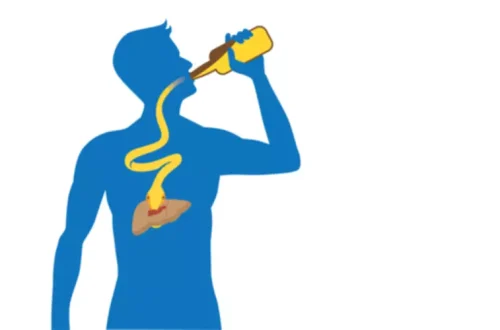
Sobriety also fosters better relationships with family members, as it allows for more authentic connections free from the negative impacts of substance abuse. By choosing to confront and overcome addiction, individuals open themselves up to a newfound freedom and a fulfilling life free from the confines of substance abuse. However, the rewards that come with it are well worth the effort invested.
- When you stop drinking, it can also reverse the negative effects alcohol has had on your cognitive functions like problem-solving, memory, and attention.
- The National Institute on Drug Abuse recommends comprehensive health check-ups at least annually for individuals in recovery.
- If you find it difficult to make new, sober friends, try joining a support group.
- A big part of alcohol recovery is taking steps to improve your lifestyle through changes like diet and exercise.
Setting Healthy Boundaries to Protect Your Recovery
Choosing sobriety can empower your immune system by reducing inflammation, enhancing your body’s capacity to combat infections, and boosting the production of antibodies. Overcoming alcohol addiction can help you break free from the cycle of low self-esteem. While alcohol might provide a temporary boost in confidence, it can ultimately lead to lower self-esteem and feelings of shame.

Three Key Health Benefits of Quitting Alcohol

Emphasizing both personal health and the restoration of relationships, choosing to become sober is a monumental step toward a more fulfilling and constructive lifestyle. You can try to avoid the conversation, but it’s good to have a response ready in case that’s not possible. If the question comes from someone you know well, you may want to say that drugs or alcohol became a problem for you, so you’re staying away from them. If you don’t know the person well, simply saying you have to get up early the next morning or you quit for health reasons should be enough. Research shows that some damage to your brain, liver, heart, and gut done by alcohol will slowly heal when you stop drinking.

Characteristics of Sober Living Houses
By embracing sobriety, you can (and will!) experience a range of health benefits that enhance your overall quality of life. Finally, a strong community of sober supportive help is available, providing individuals with the necessary tools and resources to navigate the challenges of addiction recovery. Such changes can include avoiding triggers and creating a robust support system that encourages and uplifts. The journey to sobriety is continuous, often filled with its fair share of ups and reasons to stay sober downs. At Renaissance Recovery our goal is to provide evidence-based treatment to as many individuals as possible.

When you stop drinking, it can also reverse the negative effects alcohol has had on your cognitive functions like problem-solving, memory, and attention. One study found that around 70% of participants had sleep problems when they were admitted for alcohol treatment. That number dropped to 50% when the participants went home, and many reported that their sleep quality got better after treatment.
Alcohol can also affect digestion, storage, utilization, and excretion of nutrients. That’s why it’s common for people who use alcohol to be malnourished. Neurotransmitters can rebound beyond their usual activity levels, which can leave you feeling anxious and irritable. Volpicelli explains that this volleying can also lead to low motivation or anxiety and depression. There are certain brain chemicals called excitatory neurotransmitters that will stop doing their job when you drink, which can make you feel sleepy and sedated. One of the most profound ways that alcohol affects you is through what it does to your body.

You’re more likely to surround yourself with other people who also misuse substances, and that can mean you never really get to know people without the influence of these substances. Romantic relationships may also be built on the use of drugs or alcohol, and frequently become toxic. According to https://ecosoberhouse.com/recovery-residence/ a study conducted by Vice, substance addiction can cost you anywhere from $1,500 to $2,250 per month. Drug and alcohol addiction can pull you away from the people who mean the most—family and friends. Despite what you may think, it’s never too late to repair these relationships. Staying sober will give you the best chance of healing and building new connections.
- Warren is a Licensed Master Social Worker, who specializes in substance abuse and mental health treatment.
- (Sober Recovery)Financial StabilitySobriety can lead to decreased spending on addictive substances, allowing individuals to better manage their finances and save for future needs.
- This can include toxic relationships in which you feel unheard, misunderstood, unsupported, demeaned, unsafe, and/or attacked.
- There are many things that can affect your sleep—physically and mentally.
- Self-love is learning to say “no” when appropriate so that you don’t create new wreckage and resentments.
- Many people who misuse alcohol or drugs have trouble dealing with anger.
Because the two types of houses served residents with different demographic characteristics, we conducted disaggregated longitudinal analyses for each. For a more complete description of the study design and collection of data see Polcin et al. (2010), Polcin et al. (in press) and Polcin, Korcha, Bond, Galloway and Lapp (in press). Some houses have a “residents’ council,” which functions as a type of government for the house. Our team of experienced and dedicated professionals will offer you the guidance and support you need to stay on track.
